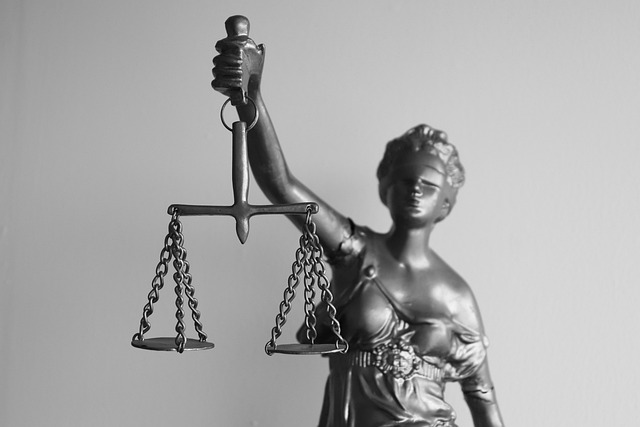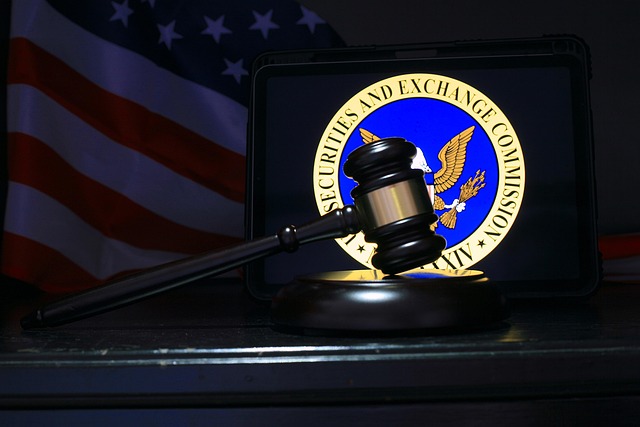In today's digital era, understanding and protecting Intellectual Property Rights (IPR) is crucial. Defending against IP claims involves a robust strategy focusing on fact assessment, identifying violations, and crafting persuasive legal arguments. This includes challenging validity, originality, and non-infringement through evidence and expert testimony. The goal is to protect clients' rights, avoid costly settlements or jail time, and navigate complex legal landscapes effectively. Key defense mechanisms include scrutinizing allegations, using robust evidence, and early communication for settlement. Case studies like Apple v. Samsung and Google LLC v. Oracle Corp. highlight the importance of proactive IP protection strategies.
“Unraveling the intricacies of Criminal Law, this article delves into the critical domain of defending against intellectual property claims. Understanding intellectual property rights is paramount in today’s creative landscape. We explore common types of cases, from patent infringements to trademark disputes, and dissect the legal process involved. Learn about strategic defense mechanisms and gain insights from notable case studies, offering a comprehensive guide to navigating these complex legal issues.”
- Understanding Intellectual Property Rights and Their Protection
- Common Types of Intellectual Property Cases and Defenses
- The Legal Process: From Accusation to Verdict in IP Disputes
- Strategic Defense Mechanisms Against Intellectual Property Claims
- Case Studies: Notable Intellectual Property Law Cases and Their Impact
Understanding Intellectual Property Rights and Their Protection
Understanding Intellectual Property Rights (IPR) is paramount for businesses and individuals alike, especially when navigating complex legal landscapes. IPR encompasses a range of protections for creative and innovative works, including patents, trademarks, copyrights, and trade secrets. These rights are vital tools for safeguarding original ideas, inventions, artistic expressions, and commercial symbols. In today’s digital era, where information is readily shared, defending against intellectual property claims has become increasingly crucial.
When faced with potential IPR disputes, a robust general criminal defense strategy becomes essential. This involves careful assessment of the facts, identifying potential violations, and constructing a compelling legal argument. For instance, in white-collar and economic crimes cases, understanding the nuances of patent infringement, copyright violation, or trademark misuse can significantly impact the outcome. The goal is to not only defend against specific charges but also to ensure that the client’s rights are protected and their intellectual property is safeguarded through effective representation, potentially avoiding costly settlements or jail time during jury trials.
Common Types of Intellectual Property Cases and Defenses
Intellectual property (IP) cases encompass a wide range of legal disputes centered around the protection and exploitation of creative works and innovations. Common types include patent infringement, copyright violations, and trademark misuse—each presenting unique challenges for both plaintiffs and defendants. Defending against intellectual property claims often involves intricate legal strategies tailored to specific circumstances.
For instance, in patent cases, defendants may argue that the accused technology lacks novelty or fails to meet the required level of inventiveness, known as non-obviousness. In copyright disputes, fair use is a significant defense, allowing limited use of copyrighted material without permission for purposes like criticism, commentary, news reporting, teaching, scholarship, or research. Trademark cases may involve challenging the strength and distinctiveness of the mark or proving that the alleged infringement does not cause consumer confusion. Achieving extraordinary results in these complex matters requires a deep understanding of IP laws and the ability to navigate both jury trials and alternative dispute resolution methods, serving corporate and individual clients alike.
The Legal Process: From Accusation to Verdict in IP Disputes
The legal process in Intellectual Property (IP) disputes involves a series of structured steps to ensure justice is served. It begins with an accusation or complaint, where one party alleges infringement upon their intellectual property rights by another. This can be initiated by corporate and individual clients alike, making it a broad concern for various businesses. Once filed, the accused faces a thorough investigation, during which evidence is collected and analyzed to determine the validity of the claim.
The court proceedings then unfold, offering both parties a chance to present their cases. Defending against intellectual property claims requires a strategic approach, often involving complex legal arguments and expert testimony. The goal for the defense is to either settle the case out of court or, if trial is inevitable, to achieve a complete dismissal of all charges. This intricate process demands meticulous attention to detail and a deep understanding of IP laws to safeguard the rights and interests of respective business entities.
Strategic Defense Mechanisms Against Intellectual Property Claims
In the complex landscape of intellectual property (IP) law, strategic defense mechanisms are paramount for businesses and individuals facing claims. Defending against intellectual property claims involves a multifaceted approach, especially considering the intricate nature of IP rights. One key strategy is to challenge the validity of the plaintiff’s claim by examining the originality and novelty of the alleged infringed work during all stages of the investigative and enforcement process. By presenting robust evidence and expert testimony, defendants can sway public opinion and win challenging defense verdicts in both bench and jury trials.
Moreover, building a strong case for non-infringement is crucial. This includes demonstrating that the accused product or service does not replicate or depend on the plaintiff’s protected intellectual property. Effective communication of these defenses early on can often lead to settlement negotiations, saving time and resources. Ultimately, successful defending against intellectual property claims hinges on meticulous preparation, strategic planning, and a deep understanding of both IP laws and the specific facts of the case.
Case Studies: Notable Intellectual Property Law Cases and Their Impact
In the realm of intellectual property law, case studies play a pivotal role in shaping legal strategies and protecting creators’ rights. Notable IP cases have left an indelible mark on how we defend against intellectual property claims. For instance, high-stakes cases like Apple v. Samsung highlighted the importance of establishing unique product designs and distinguishing features to safeguard innovations. This has become a blueprint for general criminal defense attorneys across the country, emphasizing the need for robust IP protection strategies.
Additionally, landmark decisions such as Google LLC v. Oracle Corp. have underscored the complexities of software licensing and copyright infringement. These cases have far-reaching implications, encouraging businesses to be more vigilant in defending their intellectual property rights. As a result, attorneys specializing in general criminal defense now focus on proactive measures, including thorough non-disclosure agreements, comprehensive trademark registration, and meticulous documentation, to navigate the intricate landscape of IP law and protect clients’ interests in high-stakes cases.
The intricate world of criminal law, particularly as it pertains to intellectual property (IP) cases, demands a deep understanding of both the legal process and strategic defense mechanisms. By navigating the common types of IP disputes and their defenses, individuals and businesses can effectively protect their rights and innovations. Case studies highlighting notable IP law cases serve as powerful testaments to the far-reaching impact of these legal battles. Ultimately, mastering the art of defending against intellectual property claims is crucial for fostering a robust and creative society while ensuring fair practices in today’s digital age.






